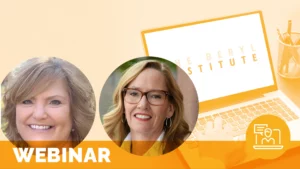“We were learning together and it felt good that way.” A case study of a participatory group music program for cancer patients

Though there are similarities to music therapy, the field of community music in healthcare, while in its infancy, is steadily growing. This case study explored how semi-formal, active music-making can play a role in illness and recovery and provide patients with a sense of voice, connection, and community, and the efficacy of community music programming in a hospital. Six participants began and three participants completed a 6-week music class learning the ukulele. Interpretative Phenomenological Analysis (IPA) was used as a method for data analysis from semi-structured pre-questionnaires, transcribed classes, transcribed post-interviews, and weekly questionnaires from both the participants and the facilitator. Emergent and recurrent themes central to the participants’ experiences were discovered: (1) Music as a connector, (2) Music within us external to cancer, (3) Musical experiences interrupted by cancer, (4) Music creates empowerment. Subthemes and individual experiences are also explored. Implications for future research and music’s role in improving the Patient Experience in hospital settings are discussed.
Related content
-
 Environment & Hospitality
Environment & HospitalityA concept analysis of the patient experience
Patient experience, an essential indicator of quality patient care, is of increasing importance to hospitals that want to improve and maintain strong patient experience metrics to remain competitive in the business of healthcare. The aim of this study was to clarify the concept of the patient experience by identifying its existing definitions, methods of measurement,
Learn more -
 Environment & Hospitality | Patient Family & Community Engagement
Environment & Hospitality | Patient Family & Community EngagementIntegrating Recreational Art Activities into the Patient Experience
This research study explores the impact of recreational art activities on the human experience of hospitalized patients. With funds awarded through The Beryl Institute’s Grant Program, University of Maryland St. Joseph Medical Center launched Heart Cart, a painting program for inpatients. Reaction to the initial pilot from cardiac surgery patients was so positive, the art
Learn more -
 Culture & Leadership | Environment & Hospitality | Staff & Provider Engagement
Culture & Leadership | Environment & Hospitality | Staff & Provider EngagementUnexpected Healers Create Moments that Matter for Patients and Families
As healthcare healers, we touch many lives. Many of our patients and their families are thankful for this and reach out to share gratitude in many ways. They send notes, fill out focused recognition cards, respond to mailed surveys or utilize our Sutter Health new online feedback form. Often in healthcare we think of our
Learn more
